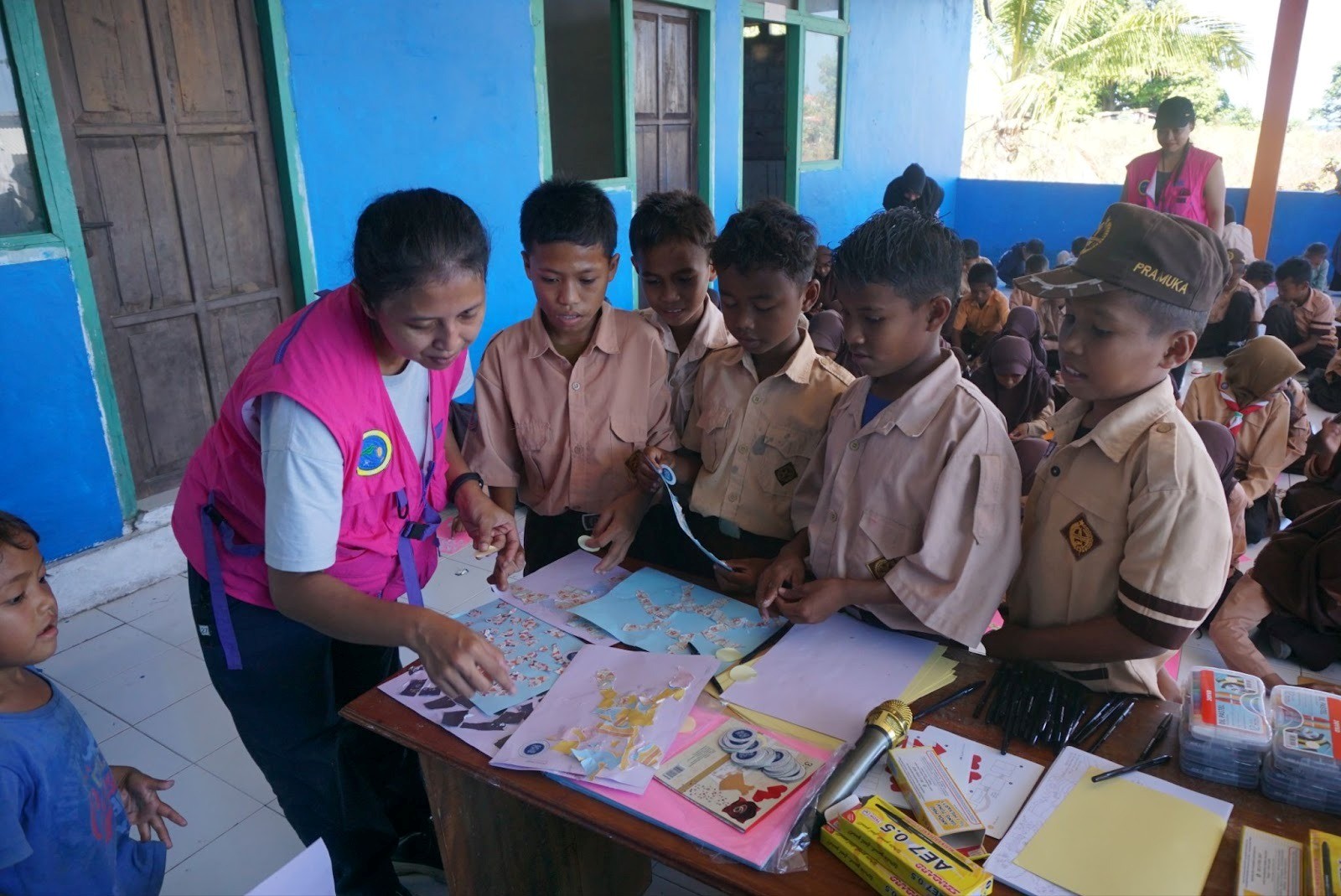Prof. Djoko Santoso Abi Suroso Scientific Oration: Reviewing the Readiness Climate Change Adaptation through Spatial Planning
By Adi Permana
Editor Adi Permana

BANDUNG, itb.ac.id – Prof. Ir. Djoko Santoso Abi Suroso, Ph.D., a Professor from the School of Architecture, Planning, and Policy Development (SAPPD) ITB delivered a speech at the ITB Professor Scientific Oration on Saturday (6/7/2022). His scientific oration was titled "The Role of Spatial Planning in the Adaption of Coastal and Marine Areas to Climate Change".
According to Prof. Djoko, the adaptation of coastal and marine areas to climate change is an effort of both the natural and human systems to adjust and try to reduce the impact of climate change. This kind of adaptation can be found in the transitional areas between land and marine ecosystems, as well as in the water spaces that connect one landmass to another.
The GDP losses due to climate change are predicted to reach around 115 trillion with the largest impacted sectors being the marine and coastal sectors. As a response to this climate change issue, two main actions are being carried out, climate change mitigation and climate change adaptation. However, in reality, both the national and global endeavors are still lagging behind the amount of funding that is recommended with a difference of almost 38 billion USD.
The threat of climate change which now has become a global issue is a concrete phenomenon that is proved by an increase of 1? global average temperature recorded between 2010-2019 period relative to the 1850-1900 period. Prof. Djoko added that by using climate modeling, the earth's temperature is projected to experience a rise of 4? by the year 2100. This condition can trigger various disasters and anomalies such as ocean acidification, coral bleaching, and sea level rises.
"What is happening globally can be confirmed by the national data. The sea level rise that we observed in Indonesia is in line with the global projection. This condition reflects that the climate change impact on the coastal and marine areas will be very disastrous," said Prof. Djoko.
Prof. Djoko explained that climate change conditions can be intervened through adaptive spatial planning, one example is by applying the Ecosystem-based Adaptation (EbA) concept. The main principle of EbA is using existing biodiversity to increase our adaptational ability. Indirectly, this concept encourages the optimization of the role of the ecosystem in supporting the sustainability of its surrounding environment.
He further added, "An adaptation tool that is considered effective is by implementing spatial planning. Spatial planning can function as a climate change adaptation device that guides the configuration of infrastructures and land use policy away from the most impacted area."
On the other hand, according to Prof. Djoko, the current spatial planning policies have not yet taken into the consideration the impacts of climate change. Ministerial Regulation ATR/BPN 11/2021 sought to address this issue by including climate change adaptation and mitigation as newly added aspects that need to be considered when proposing a new spatial planning policy.
The academician adopted this concept into a science-based integrated adaptive spatial planning scheme. However, this scheme is still in the streamlining process because it is considered to be too scientific and complicated by spatial planning practitioners.
"ITB has a lot of opportunities to engage in solving the problem of the management, science-based, and technology of climate change adaptation. Especially with our competent Urban and Regional Planning and Oceanography Study Program together with the Marine Technology Cooperation Research Center in the ITB Cirebon Campus," concluded Prof. Djoko ending his oration.
Reporter: Hanifa Juliana (Urban and Regional Planning, 2020)
Translator: Favian Aldilla R (Civil Engineering, 2019)

.jpg)
.jpg)


.jpg)


